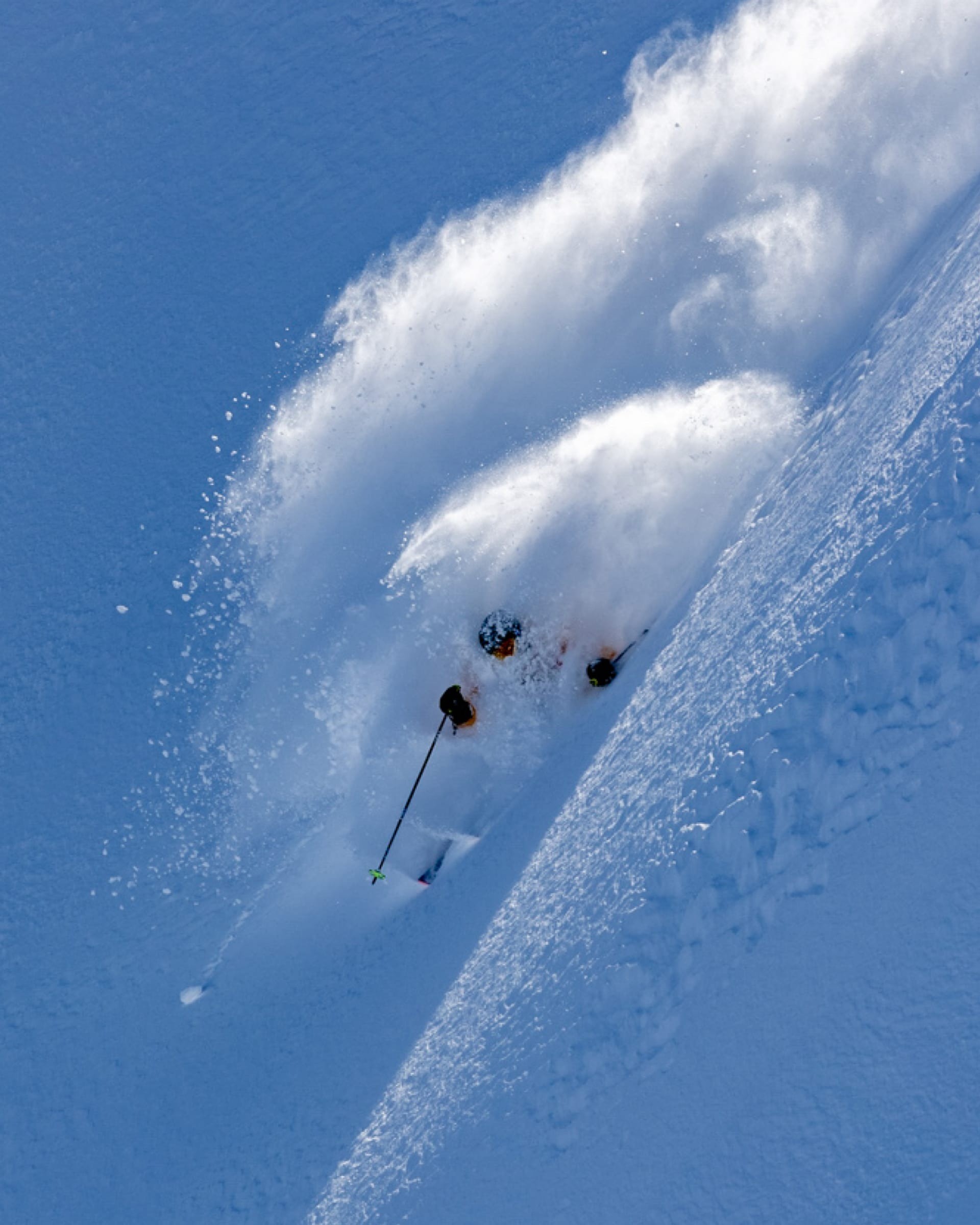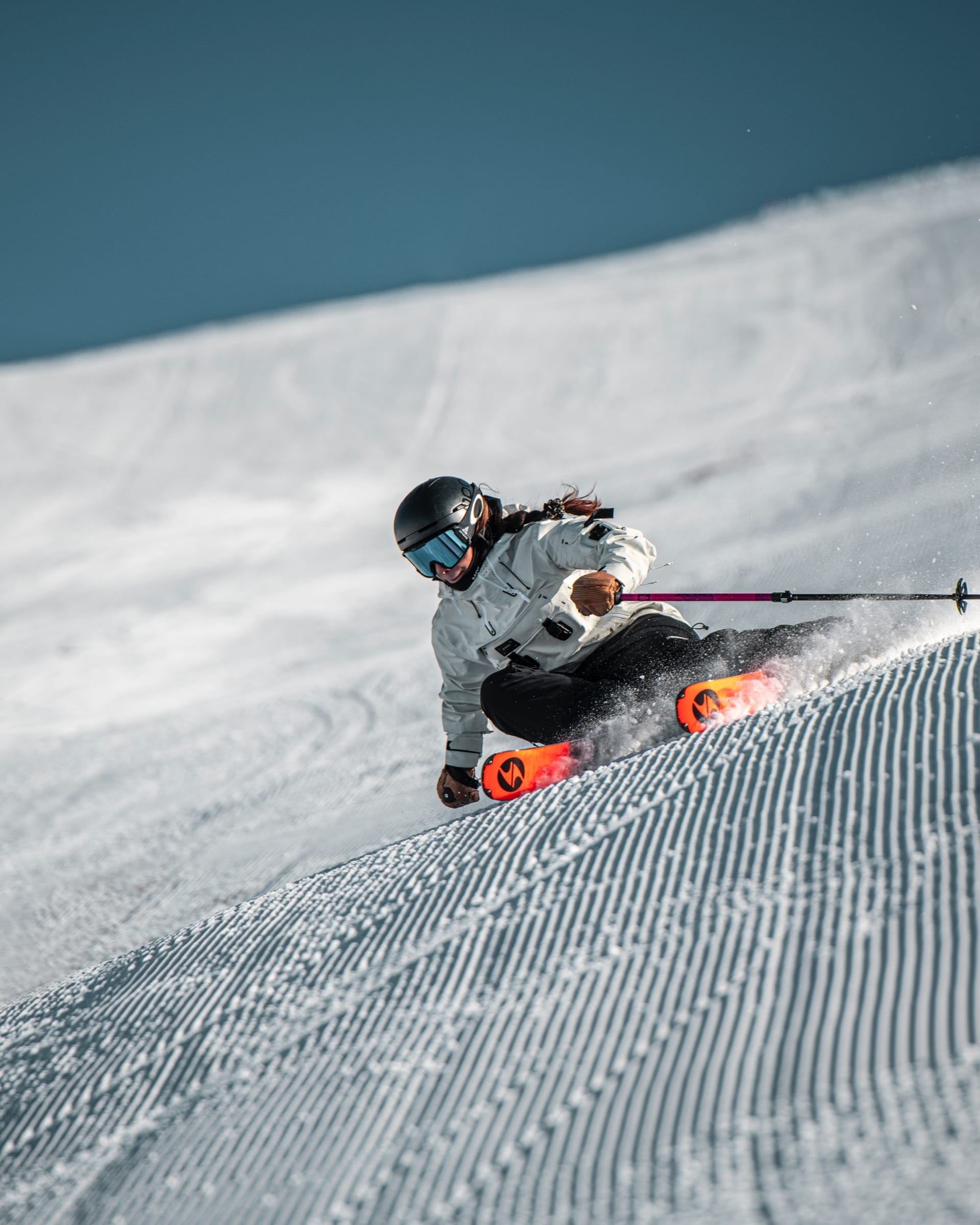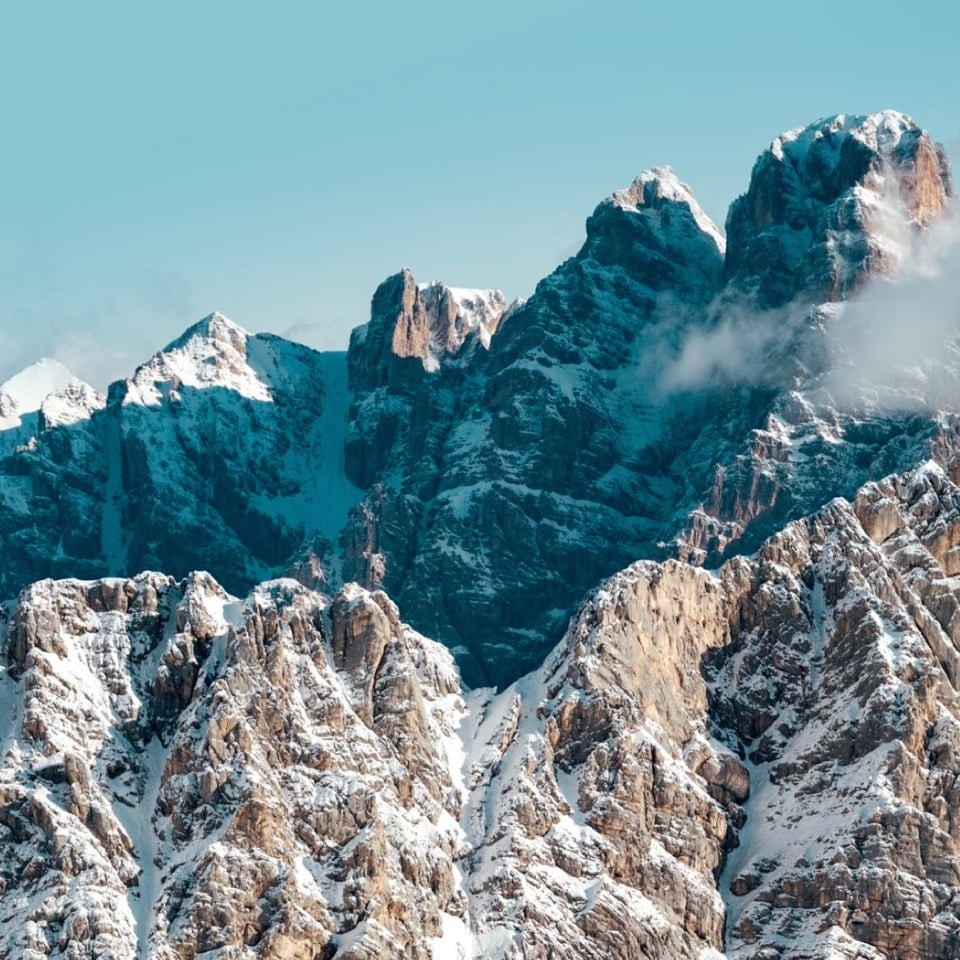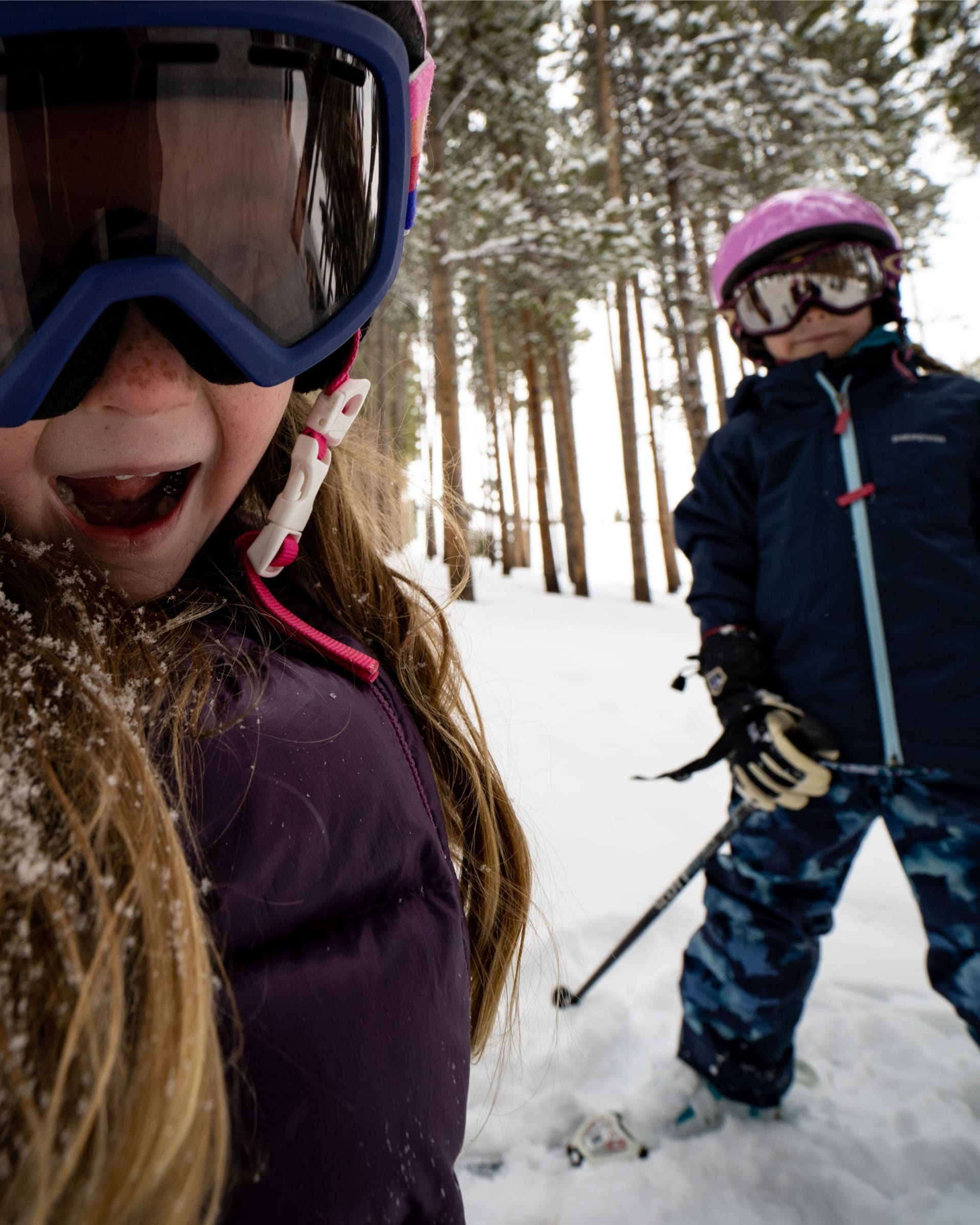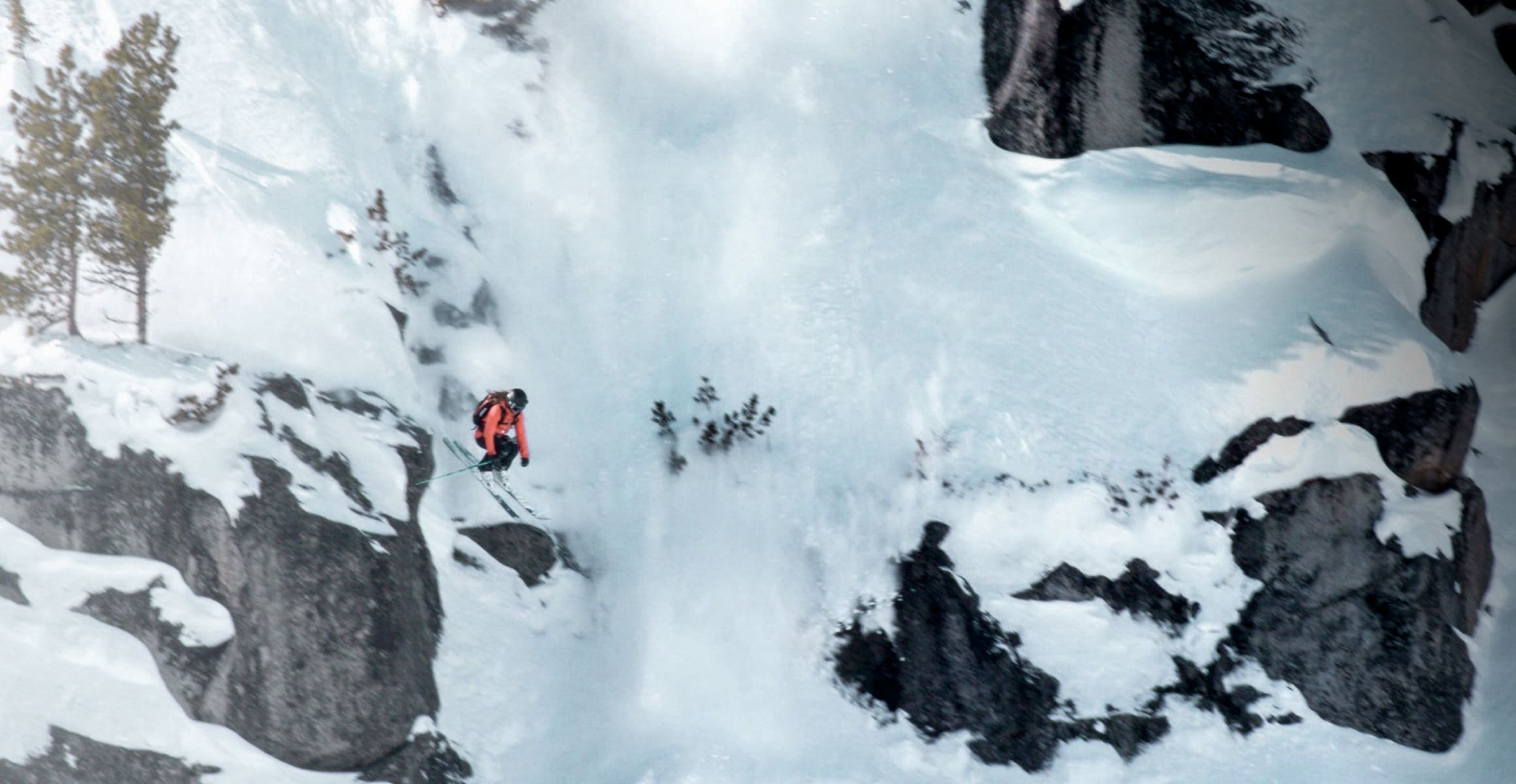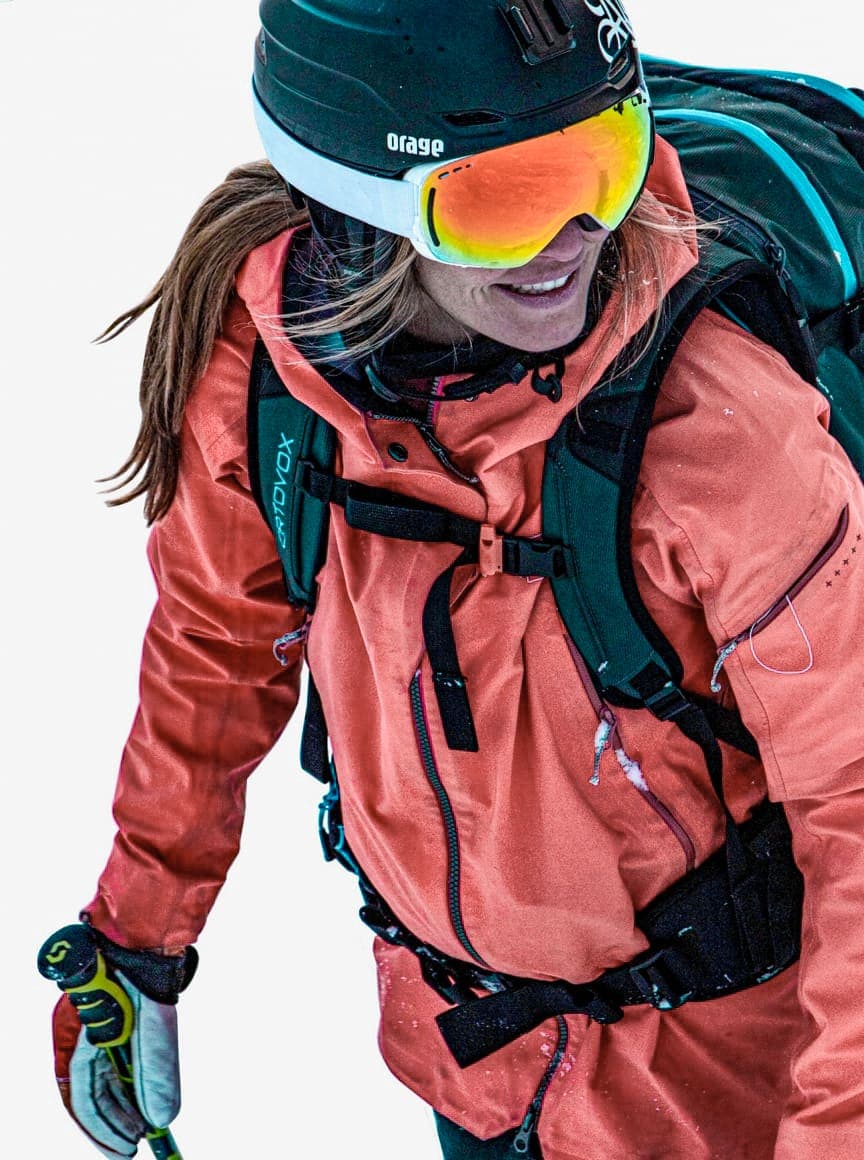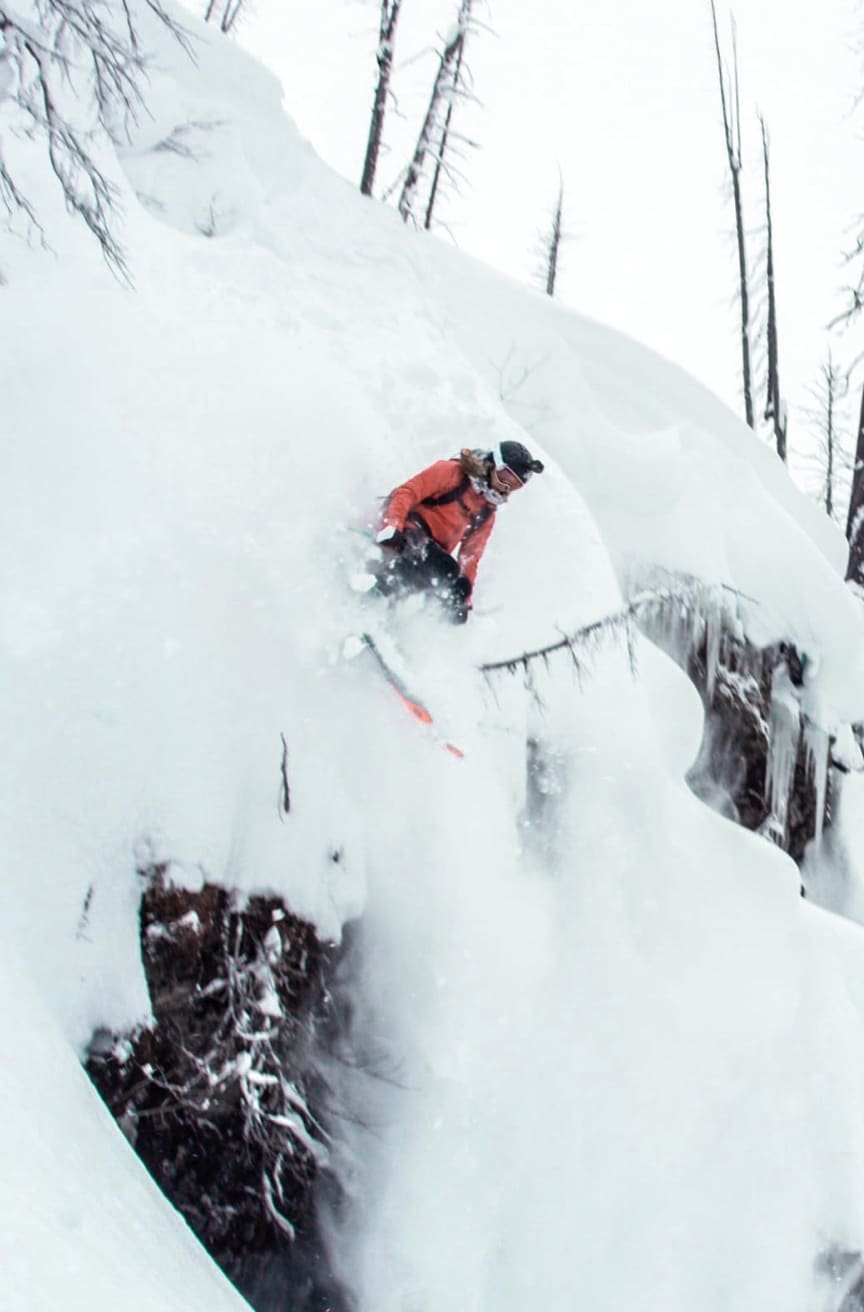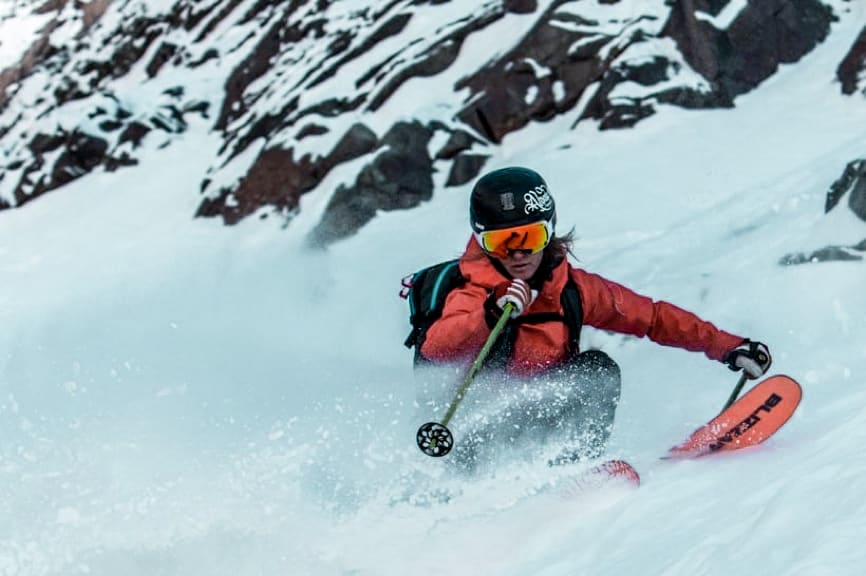Confidence is fundamental to Saugstad, especially for skiing. It’s a tool that allows her to move through the mountains. A sense of confidence actually gives Saugstad the humility to identify her boundaries,
so that she can respect her limits in dangerous terrain, absorb education and feedback, and gradually expand her horizons. In that way, confidence is a circular process that allows her to grow and grow.
“Everyone needs to know where their boundaries are,” said Saugstad. “There are certain aspects of my skiing that are at a very, very high level, but there’s always things that can be improved, for sure.”
We were sitting down for coffee in Truckee, California, on a warm, spring morning. Saugstad had just returned to her home in Lake Tahoe a couple of weeks earlier, after a trip to Alaska to film for a ski movie. As always, Alaska is a testing ground. She skied incredibly steep terrain that was on the limits of her comfort zone. But even someone like Saugstad, one of the best skiers on the planet, gets knocked down. Her trip ended with a crash. She was in the runout, holding on and skiing fast, when she got bucked.
“Alaska is the kind of place where, if you jump right in, and get over your head and crash, it knocks your confidence so far down, you’re not even starting from baseline,” said Saugstad.
